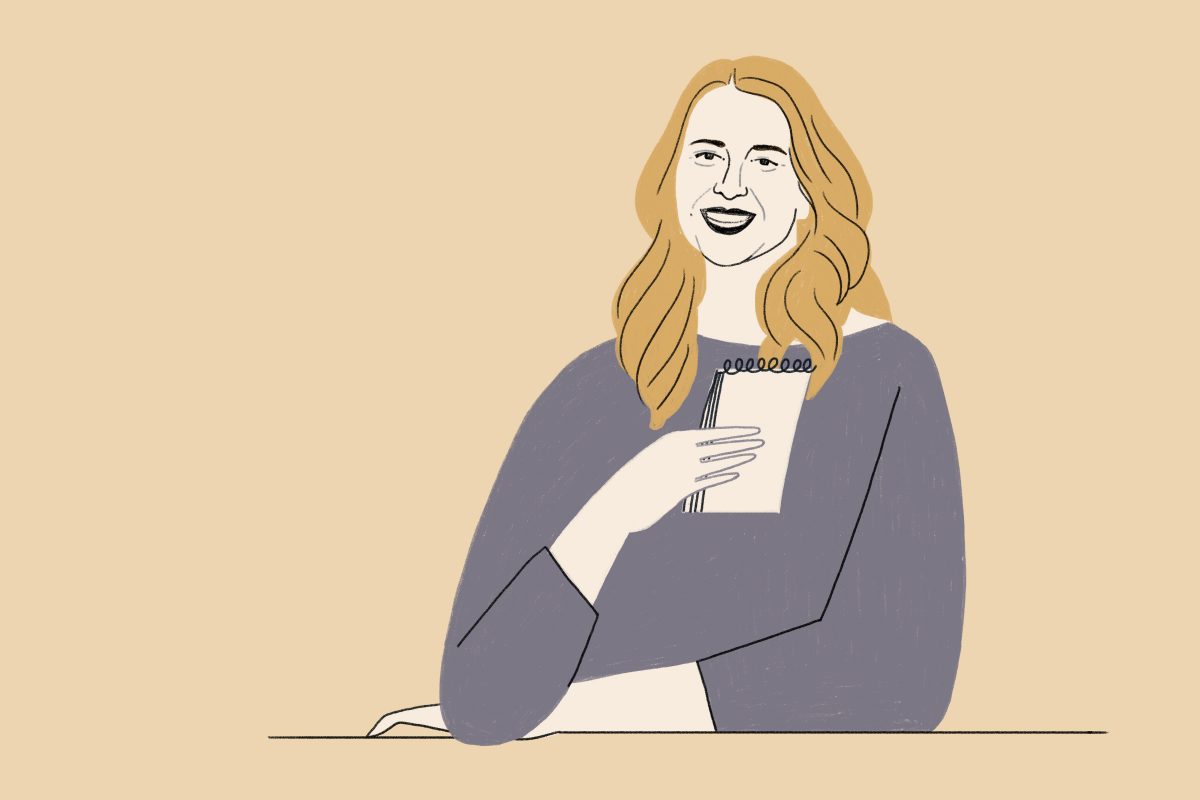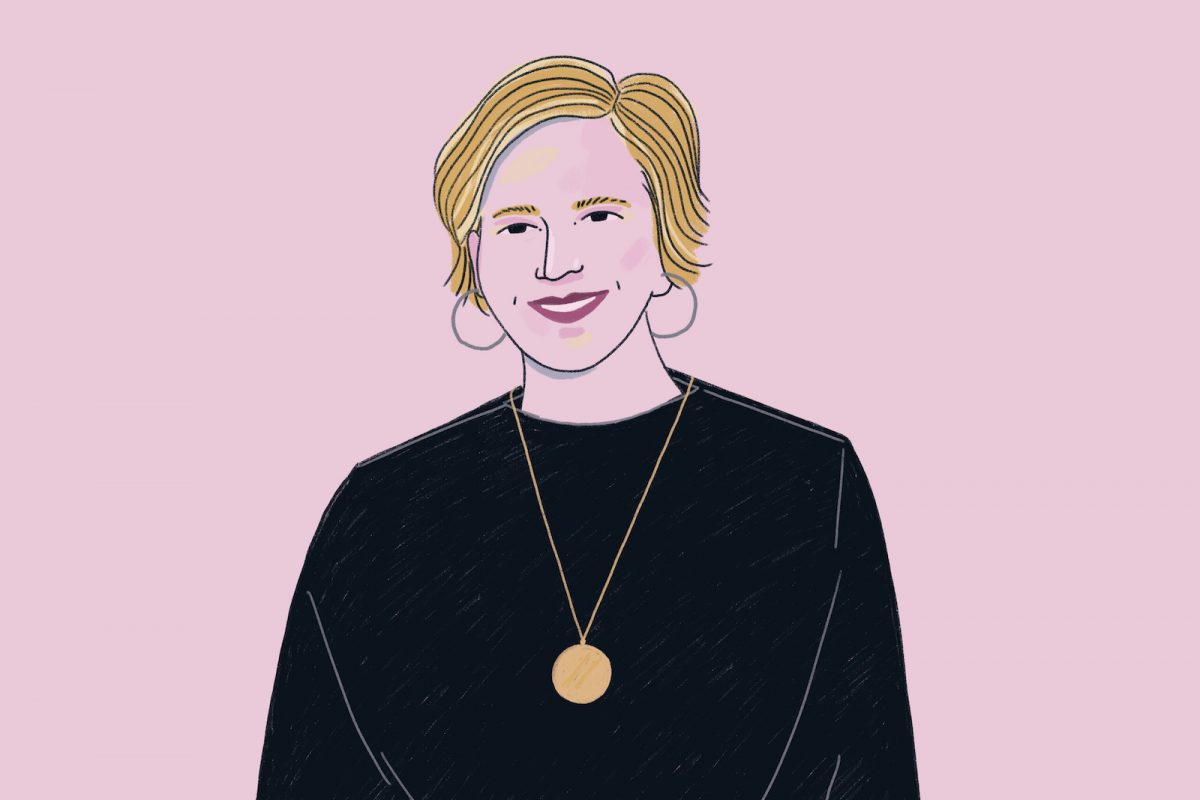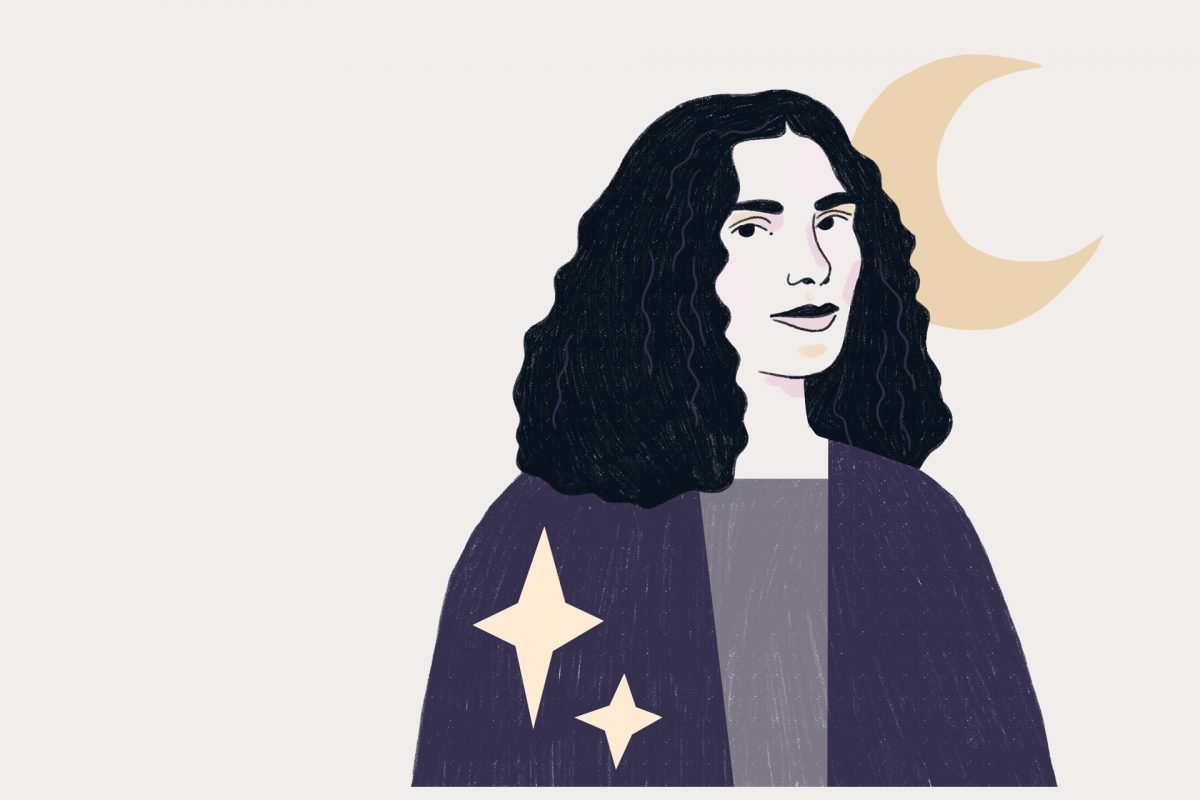Cheryl Strayed has never shied away from taking stock of her own life. At 26, in the wake of a divorce and her mother’s untimely death, Cheryl embarked on a 94-day, 1,100-mile solo hike along the Pacific Crest Trail. She chronicled that journey in her 2012 memoir “Wild,” the New York Times bestseller that later became a feature film produced by and starring Reese Witherspoon.
The no-holds-barred vulnerability that courses through “Wild” is a hallmark of Cheryl’s work. In her role as Sugar, the anonymous writer behind the beloved advice column “Dear Sugar,” which garnered a cult following during its two-year run on the literary website The Rumpus, Strayed wrote frankly about her own life in answers to readers’ questions on everything from addiction to existential doubt. A selection of those columns was published in Cheryl’s bestselling book “Tiny Beautiful Things,” and the column was the basis for an eponymous podcast co-hosted by Cheryl and Steve Almond, the original Sugar, from 2014 to 2018.
Cheryl, who teaches workshops and writing seminars and is now the author of four bestselling books, tells us about the joy of choosing her own life and the work required to get there.
“That’s the secret to joy: You get to decide what you’re doing with your life.”
There are many parallels between completing what Marie calls a once-in-a-lifetime “tidying festival” – during which individuals confront all of their belongings in one fell swoop – and your hike along the Pacific Crest Trail. What is it about large undertakings like these that result in life-changing magic?
It’s an interesting contradiction. When you do any kind of meditative practice your mind is allowed to be both empty and full. It empties itself of distractions to make space for all your experiences and memories. When I was walking, I was confronting my whole life – everything I was carrying every day but was invisible to me. That’s what Marie means when she talks about confronting all your things. There’s stuff there, even if you don’t know it, and you’re making the space to deal with it.
Part of the change that occurs when individuals apply the KonMari Method™ is the awakening of our conscious decision-making. After your hike, what did you begin to take ownership of?
The most important thing that has changed is my relationship to difficulty. When something is hard, most of us just stop doing it. The interesting thing about being on a hike was that I honestly could not stop. I could take a break or say to myself, “This is not fun and I don’t want to do it,” but I couldn’t be airlifted off the trail. I had to stay in the difficulty. The only way out was to keep enduring until it was over. That lesson went so deep that it’s now a part of who I am.
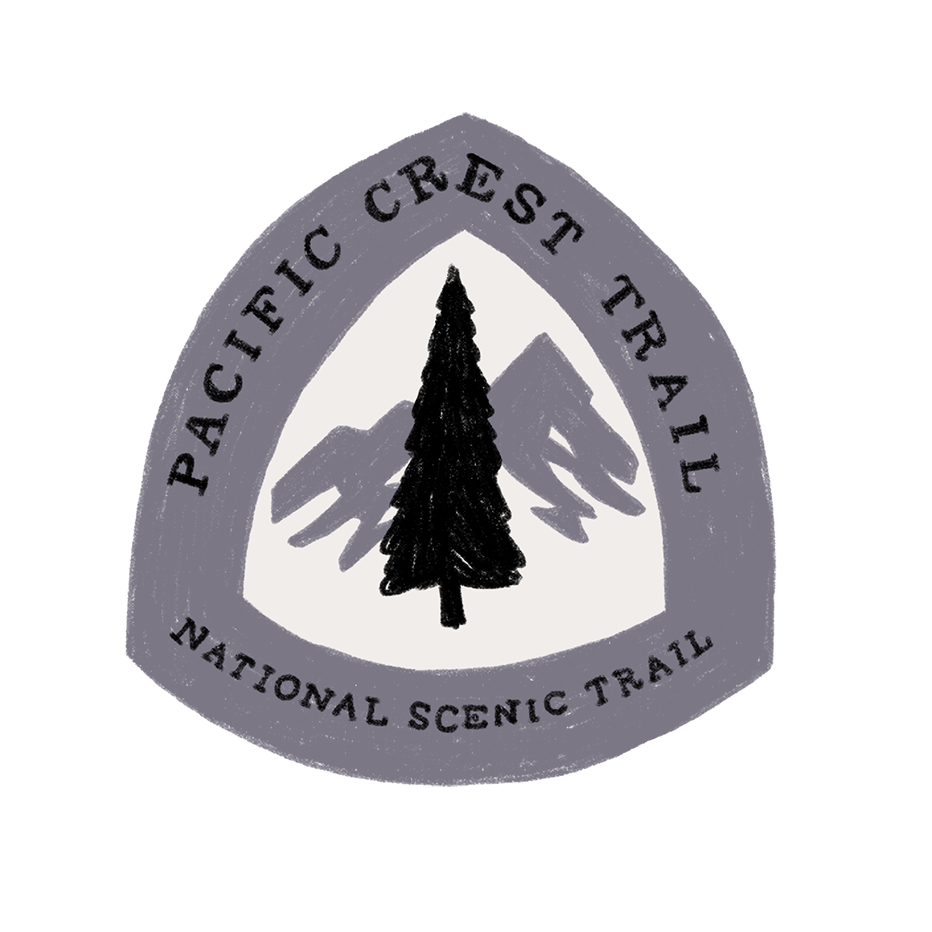
How has that lesson of enduring difficulty impacted your life off the trail?
The biggest way, quite frankly, is writing. Anyone who has written anything – whether you’re a professional writer or not – knows that writing is hard. Now I’m able to say that difficulty is actually a part of writing, the same way that it’s a part of hiking. No matter how fit you are or how much you love hiking, your feet are going to hurt by the end. You’re going to experience some discomfort. It’s the same with writing.
On the subject of commitment, you wrote the advice column “Dear Sugar” for free for two years. Yet, you said you gave it your all each day, knowing it would lead to something down the road. What’s involved in committing to something that sparks joy in the long run?
Absolutely the only reason that I agreed to write that column is because it sparked joy.
It’s interesting, that word “spark.” When I was contemplating taking the job I made a list. The reasons against it were every reason: I wasn’t going to get paid; I didn’t have the time; I don’t work for free. The one reason for it was that it sounded fun. When I was discussing it with my husband, he said to me, “You’re sparked.” That was the perfect word. When people really want to do something, it lights them up.
That column ended up being the most meaningful experience that I’ve had as a writer. My book “Tiny Beautiful Things” is a collection of that work, and there isn’t a day that goes by that people don’t write to me or come up to me and say, “That book saved my life.”
“Evolution is about going beneath that old truth and finding the new truth, and then going beneath again to find the newer truth.”
Your advice to writers who are just starting out is this: “Be strong. No one is going to ask you to write. Many people will tell you not to. Don’t listen to them. If you want to be a writer, be a writer. You don’t need permission. If you need permission let this be it. I give it to you. Now go.”
How are joy and personal agency interconnected?
Deeply! That’s the secret to joy: You get to decide what you’re doing with your life. Of course, on a granular level, there were plenty of years I wanted to spend the day writing instead of waiting tables, and I was angry that I had to earn money to pay the bills. But, ultimately, in the wider view, are you doing the things that you want to do, that feel like valuable efforts to you? I feel called to be a writer, and my sense of joy on a deep level is connected to whether, at least to some degree, I’m answering that call.
“Do a check-in every now and then and ask yourself, “Am I at least spending some of my time doing things that bring me the deepest joy?”
What about people who can’t put a finger on what their life’s calling should be?
Maybe the answer is that everyone’s calling isn’t about career or vocation, but a way of being in the world. Americans, especially, attach career to identity; so if your mission – what you feel driven to do – isn’t in the form of a career, it could be bewildering. But your calling could be anything. It could be a hobby or a way of living. It could be planting a garden. If you’re the person on the block who likes to make dinner for friends every week, I think that’s a version of a mission as well. Do a check-in every now and then and ask yourself, “Am I at least spending some of my time doing things that bring me the deepest joy?”
The idea of checking in is a powerful one. The KonMari Method™ encourages individuals to evaluate their life in the present and acknowledge that goals and identities change. What is involved in that process of reconstruction? How do we accept our former selves without feeling shame, loss – or even regret?
When I was writing “Wild” I thought about my younger self and how not to be embarrassed for her. I realized that for every mistake I’d made, there were also all of these things I’d done right. When we look back only to condemn ourselves, we rob ourselves of the truth that maybe we did that dumb thing so we could learn from making the wrong decision.
Many of these ideas apply to Marie’s work. It’s not about condemning that person who had 15 things when they only needed three – there’s something true to the belief that you needed that stuff. Evolution is about going beneath that old truth and finding the new truth, and then going beneath again to find the newer truth.
For me, I may have made a bunch of mistakes that made me feel like I was at the bottom point of my life. But I’m also the person who, at that bottom point, came up with a plan to save myself. So, if you’re going to condemn that young kid for doing things you don’t love, you also have to congratulate that kid for the things she did right. I feel grateful for everything.
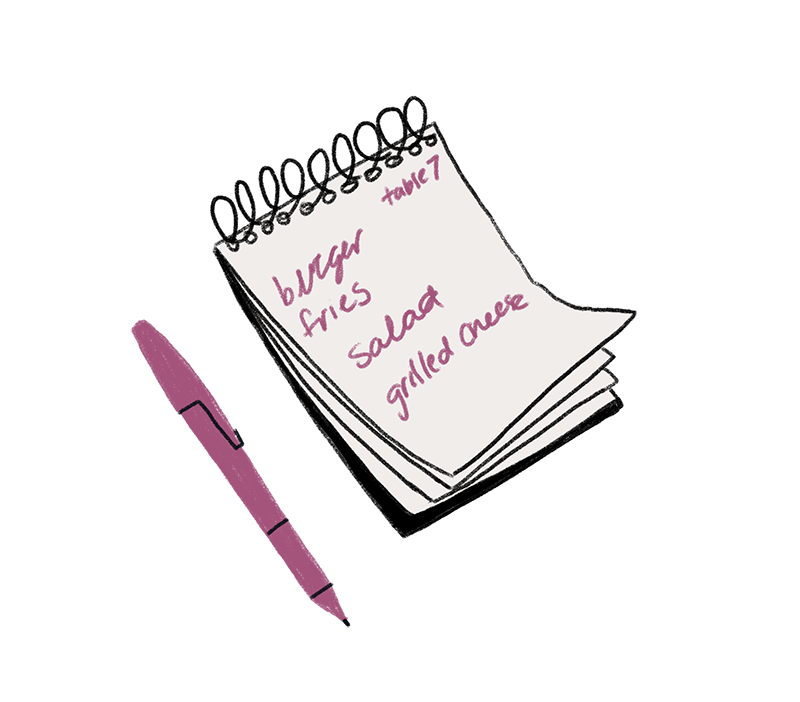
Speaking of gratitude, how do we express gratitude for the people we let go of, even if the relationships we had with them were strained?
That’s a lifelong journey and one that has been so important to my healing. I’ll use the example of my father, from whom I’ve been estranged almost all of my adult life. I have really no good stories to tell you about him. It took me a long time to get to this place, but several years ago, I truly understood that I was lucky to have known him.
I call people like my dad a “dark teacher.” If the wonderful people in my life taught me love, kindness, generosity and resilience – all things we associate with the positive – my father and people like him taught me cruelty and fear; they compelled me to learn how to be resilient in the face of humanity’s darker traits and experiences.
When I say “lucky” to have had that in my life, it’s about taking agency and saying, “I’m not going to allow this dark force to define me or my life. I’m going to put myself in command. I’m going to receive these lessons.” These dark teachers have made me more compassionate, understanding and sensitive. They’ve taught me how to forgive people who didn’t ask for forgiveness or make amends.
There’s a corollary here with Marie’s way of thinking. Objects have qualities. Sometimes, those qualities are things we want around us, like beauty, lightness and joy. Other times, objects are the opposite of that. We have to identify what each of our things are, and what to do with them. It’s the practice of loving and letting go. Letting something go doesn’t mean you don’t have a relationship with it anymore; the idea of letting go is more about not being in possession of it, not controlling it.
“I realized that for every mistake I made, there were also all of these things I had done right.”
If you could offer our readers one piece of wisdom, what would it be?
A core piece of advice that I gave in the “Dear Sugar” column was that so much of what limits us are the stories we tell ourselves. Life is about deciding which narratives to listen to. You have to examine all of them, and every story is always up for revision. Sometimes the revision is a little tweak; other times, it’s about telling yourself, “Let’s throw this one out and write a new script.” That really is a powerful way to change your life and be happier.



